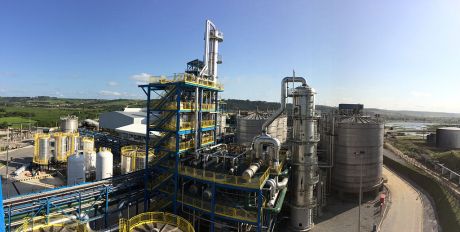Biofuels such as bioethanol are a sustainable alternative to using
fossil fuels for energy. First-generation biofuels used sugar cane and
maize and potentially could compromise food security. The second
generation of bioethanol production uses uneatable residues from these
crops, as well as crops as e.g. Miscanthus, decreasing greenhouse gas
emissions and not affecting food security.
However, second-generation biofuel technology is not yet economically viable, mostly because lignocellulose waste is difficult to break down. The EU-funded
SUNLIBB (Sustainable liquid biofuels from biomass biorefining) project connected researchers and innovators working to overcome the technical barriers associated with this kind of bioethanol production. The consortium focused on feedstock improvement, generating value added by-products and innovations in fermentation.
Researchers first investigated sugarcane, maize and miscanthus genetics, advancing knowledge of how cells walls are produced and how they may be digested more easily. SUNLIBB also showed that several potentially useful waxes are produced as a by-product of lignin digestion.
The consortium is also looking at various pre-treatments for lignocellulose waste that will make the digestion process easier. SUNLIBB conducted several pilot-scale fermentation trials along with techno-economic analyses of each method.
Once the full power of using these feedstocks is realised, it will lead to greater yields of bioethanol with reduced environmental impact. This will ultimately allay concerns over food security and the sustainability of global resources.

